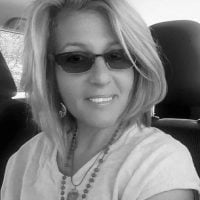View this post on Instagram
Most of us outgrow our childhood fears by the time we reach adulthood.
Sadly, we can carry any ill-spoken words our little souls heard right along with us into our adult lives. These seemingly harmless words spoken shaped our identities and self-worth, and now our childhood wounds replay in our adult relationships.
How many adults have sought counselling in one form or another for our depression, anxiety, relationship issues, or addiction? According to much psychological research, most of our adult issues have stemmed from our childhood ones. (Apparently, there are a lot of wounded children locked away in adult bodies!)
We keep reliving our childhood dramas daily. Some are not that big of a deal—and others bleed into our relationships and wreak havoc in our lives.
Looking back on my own childhood, I realized I did not think I deserved to be loved. I am not sure when it started or why, but somewhere in my life I had convinced myself I was unworthy of love. No matter how many relationships I found myself in, I could always find a way to sabotage them, and find a reason to run away.
I believed I was a failure at love. I have the trophies to confirm my beliefs—divorce documents from two failed marriages all neatly filed away with all my other important accomplishments in life.
“I now see how owning our story and loving ourselves through that process is the bravest thing that we will ever do.” ~ Brené Brown
It was difficult to face the truth that I sought out attention by acting out. But I needed to figure out why I behaved this way if I was ever going to move forward and have loving relationships without destroying them.
I do remember, growing up, I was referred to as “the difficult one,” or people would say “that’s just the way she is.” I admit that I was a strong-willed child—but why did I seek attention in my adult life in such a negative way?
When I was younger, the friends I connected with were wild children. We would make games out of breaking as many rules as we could. Even after I was punished and sent to my room, I would sneak out of the house to do anything I wanted. To me, it was not a big deal. All that would happen if I got caught was a spanking or I would get yelled at. It was a small price to pay for having fun!
As a teenager, I put my parents through hell—acting out in rebellion for any kind of attention I could get. I learned how to manipulate a situation for my benefit. In my early relationships of love, they were all just games to me.
By high school, I had mastered the game of pulling guys in and pushing them away. All I wanted was attention, but I had not learned how to get it in a healthy way.
I learned that the words we are called in our youth carry over into adulthood. These seemingly harmless remarks of “difficult” or “troublemaker” form our small identities and affect our lives when we grow up and search for love.
I am ashamed to admit this, but I have destroyed good men’s egos by pushing them away. I have tested many of my friends because I did not think I was deserving of such a loving friendship.
We are responsible for our actions. When we have unhealthy behaviors, we push good people out of our lives. They leave because they have healthy boundaries—even if it is difficult for them to let us go and watch us destroy ourselves.
I had to relearn who I was as a child, and embrace my childhood pain, too. I no longer define myself as “difficult” or “that is just the way she is.” If there is only one thing we can learn, it would be that we must release our loyalty to our past traumas.
It is important to notice the signs when they are happening. We pay a heavy price as adults by holding onto our past and not healing our inner wounds. It takes courage to go back, but don’t we owe it to ourselves and to those who love us?
Talk with your partner about your insecurities, and if need be, seek out professional counselling as an individual or a couple to help with this process. It often takes a professional to help us understand our past wounds. We dealt with them the best we knew how as a child, but we can now go back as adults and assure our inner child we are safe.
We can learn healthy habits for dealing with our wounds.
One way is to keep a diary to track progress and to document visible changes and feelings. Writing is used by many therapists in the healing process. It helps us to release our inner thoughts in a safe manner and learn about ourselves in a deeper, cathartic way.
When we are able to see our beautiful inner child, we can step out of the shadows of our former identify and form healthy, loving relationships.
But, to do this, we must first identify and make peace with our inner child.
“Dare to love yourself as if you were a rainbow with gold at both ends.” ~ Aberjhani
~






Read 20 comments and reply